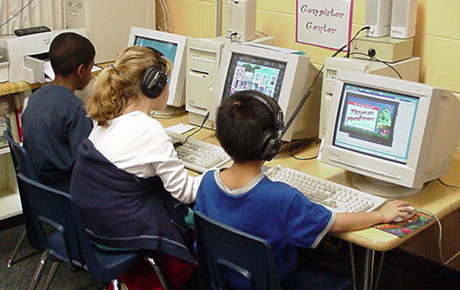So many of the higher paying jobs in our valley involve some aspect of computing and programming. A story in the Mercury News this past weekend highlighted the issue of access to technology by gender. I plan on requesting that the county Board of Education add this issue to its agenda this spring.
The number of women majoring in computer science fields has dropped precipitously since 1984, according to the Merc. An article says that in 37 percent of bachelor degrees in computer science were awarded to women 1984. But in 2011, women made up just 17.6 percent of those degrees, according to the U.S. Department of Education.
The blame for this abysmal data rests with early public education, according to UCLA researcher Jane Margolis. She also adds that students of color and those from more impoverished backgrounds have been let down. As a public school administrator in San Jose, I consistently advocate for all students to learn a foreign language. Early grades are the best place to begin instruction, but the resources often do not exist to make it happen on a systemic basis.
It was not until I attended a New School Fund conference a few years ago that I heard presenters suggest that coding languages be taught in the early grades, with a proper scope and sequence through high school. A couple months ago I ran across an article from a British journal quoting England’s Education Secretary Michael Gove. “For the first time children will be learning to programme computers,” he said. “It will raise standards across the board—and allow children to compete in a global race.”
According to England’s plan, this year children will begin learning to write code when they enter school and will continue to do so until at least 16 years old. Creating and debugging programs while learning to use technology safely and respectfully will be the beginning goals. In the more advanced stages the curricular goals will include understanding computer networks, logical reasoning to detect errors in algorithms and career elements.
Silicon Valley’s schools should be leading the world in computing curricula. But if it is happening here, it’s usually in after-school computing and robotic’s clubs, sponsored by parent engineers and their employers. Boys dominate these type of extra-curricular classes far too often.
If we begin to move in the direction England is taking, we can’t forget the basics. Reading, writing and arithmetic coupled with rigor, relevance, and relationships should continually be the focus of preschool to high school graduation.
As we educate a new generation of digital natives, we must do so with the goal of ensuring equal access for all. Girls, children of color, and those from lower socioeconomic environments deserve equal access. If school trustees and superintendents don’t lead the charge, who will?
Joseph Di Salvo is a member of the Santa Clara County Office of Education’s Board of Trustees. He is a San Jose native. His columns reflect his personal opinion and can be found weekly on San Jose Inside.


This is clearly a case of “fighting the last war”.
People like you used to be worried about the number of women going to college, until about 20 years ago. Now you worry about the number of men going to college.
http://www.prb.org/Publications/Articles/2011/gender-gap-in-education.aspx
Stick to teaching the “three Rs”. Kids aren’t prevented from getting computer related jobs because they haven’t been exposed to computer technology at an early age. They’re prevented from getting those jobs because they can’t get through high school.
It would be wonderful to teach kids computer programming, but you have to hire teachers that can program and you’d have to pay them. Given that any programmer can make a lot more in an IT job than a teaching position, filling that position with anyone actually qualified to fill it, will be next to impossible. Considering how screwed up our schools are already, I can’t see this kind of stuff happening without major fixing of what’s already broken (no child left behind has to go, and our schools need to get their funding back to pre-austerity levels).